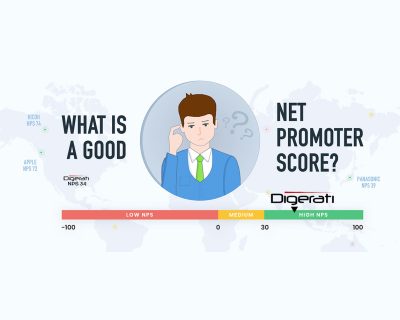Blog

Untapped Value in the Small-Business Market? This Communications Company Says Yes
The small and midsize business (SMB) market is an oft-overlooked segment of the U.S. economy. It’s an astounding realization when you consider that SMBs comprise 99.7% of all businesses, according to the Small Business Administration’s FAQ publication.
While national providers with substantial advertising budgets garner the most attention, businesses with scalable service models that support SMBs are often glossed over. Usually, this is a consequence of a highly fragmented market of service providers serving this segment of the market.
A Big Opportunity in the Small Sector
Digerati Technologies, Inc. DTGI +1.49%
(Get Free Alerts for DTGI), a unified communication as a service (UCaaS) company, has identified this particular phenomenon in its own industry of cloud-based communication solutions. As prominent players such as Vonage VG +0.15%
(Get Free Alerts for VG) and AT&T Inc. T +1.68%
have moved upmarket to focus on large multinational companies, Digerati sees untapped potential in providing high-quality solutions to the underserved SMB market.
In the U.S. nearly 50% of the UCaaS industry is made up of local players who operate on a small scale but have strong relationships with their customer base. Technology has leveled the playing field for smaller UCaaS providers to compete effectively against national providers such as Vonage. Still, many SMBs prefer the level of service a local partner can provide that has given the smaller UCaaS provider a competitive edge.
After all, there is something to be said for getting a live human being when you call the support line. And with the global UCaaS space set to grow to $169 Billion by the year 2027, there will be no shortage of SMBs looking for that local touch.
Part of Digerati’s growth strategy leverages this highly fragmented landscape of local UCaaS providers to find acquisition targets that have high gross margins with recurring and predictable revenue streams.
Bringing a Method to the Madness
However, Digerati maintains a disciplined approach when it comes to acquisitions. The Company targets local operators with $2 million to $10 million in annual revenue, which is mostly from long-term contracts with business customers. UCaaS providers with these characteristics tend to have low churn because they have strong relationships with their customers.
Digerati also qualifies potential candidates based on their existing tech stack and its ability to be integrated into the Digerati platform. This is a critical element of any acquisition because it allows for cost savings and efficiencies to be stacked upon each other, all while retaining the local touch small operators have traditionally offered to their customers.
In a recent interview, CEO Art Smith shared that the Digerati acquisition pipeline contained around 50 possible acquisitions that have the potential to contribute more than $100 million in value.
Moreover, this acquisition strategy isn’t just theoretical for Digerati. The Company successfully executed two simultaneous transactions in November 2020, acquiring Nexogy and Active PBX. Together, the two Miami-based communications providers contributed $8 million in revenue and 2,600 business customers to Digerati’s client portfolio.
By integrating the back office and handling the regulatory headaches for its acquired businesses, Digerati frees up local operators to focus on what they do best — servicing clients and maintaining a local touch.
As the UCaaS market continues to grow, companies such as Digerati may have a phenomenal opportunity to create substantial enterprise value by rolling local operators under their umbrella.
Article posted from Benzinga (Link to Original)




